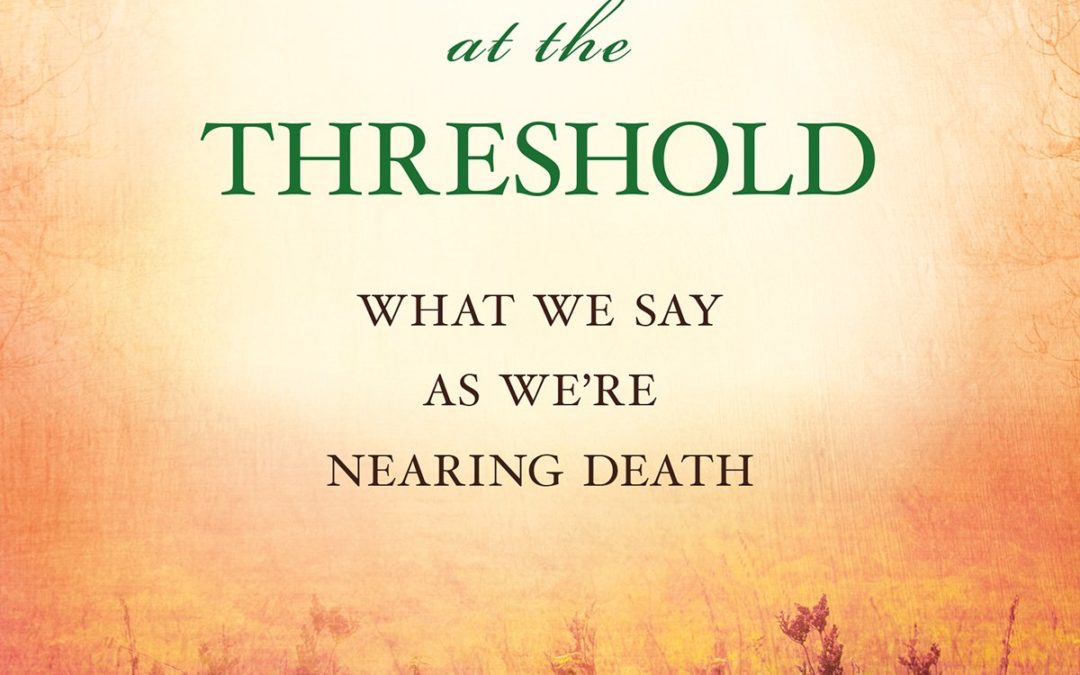Words at the Threshold
Lisa Smartt
–Review by Vern Hyndman
“Words at the Threshold: What We Say as We’re Nearing Death” is a book that Lisa Smartt wrote while finding her way through the grief of her father’s death. For a book that deals with the last words of dying people, Threshold is a surprisingly hopeful book.
Unlike some other notable books on death and near death experiences, Threshold is not written from a sensational perspective, but rather an academic perspective. Maybe more exactly, from the threshold of an educated researcher in the wrestling of grief. I can’t promise that you won’t weep, as I did. I’m reasonably certain that you’ll learn something new about dying, about eternity, and about the transition from life into life.
Many people who sit with the dying assume that the nonsensical ramblings are in fact nonsense, or the net effect of drug induced delirium. Only by collecting a vast number of utterances and analyzing them comprehensively is another possibility apparent. Smartt offers the premise that dying people are trying to articulate a world that transcends time, space, and matter to loved ones mired in time, space, and matter. Smartt provides research outcomes that suggest two types of seemingly nonsensical statement are inadequate attempts to translate the first glimpses of a world beyond explanation. The phrases are often metaphoric, and sometimes inherently contradictory. Smartt’s research recorded deathbed or after-death visions of dogs, cats, butterflies, and birds, but no other species. Commonality in visions and the types of metaphors were sometimes uncannily resonant in many cases.
This book is not filtered through the moral or theological corrective lenses one might expect from a book about death. The author reports near-death experiences, as well as communication with the dead, psychic mediums (no small or extra-large), and shaman experiences. A very interesting consequence of the lack of religious filter is that the accounts align with what we believe about life after death, but seem to be even more wonderful than most religious beliefs portray.
As a biomedical engineer in the department of anesthesia, I have experienced the death of patients in the operating room, or the haunting and holy process of organ harvesting from life-giving donors. Smartt relates near-death experiences of people whose heart activity was flat-lined, and their brain activity was flatlined, who were able to tell hospital staff about the conversations after their perceived death, and subtle details such as clothing and jewelry. I have always reserved some skepticism around these accounts, wondering if there were some latent level of consciousness that is not solely spiritual. Smartt related a type of near-death experience that shocked me and has opened new curiosity for me; Smartt relates 80 cases of people who could relate the kinds and color of clothing worn by people in the room, as well as other details, and yet these patients were blind since birth. Even in typing this account, my skin tingles and my senses alert. How wonderful.
The dead live, and the blind see. Where have we heard that promise before?
- Smartt, Lisa. Words at the Threshold: What We Say as We’re Nearing Death (p. 94). New World Library. Kindle Edition.

